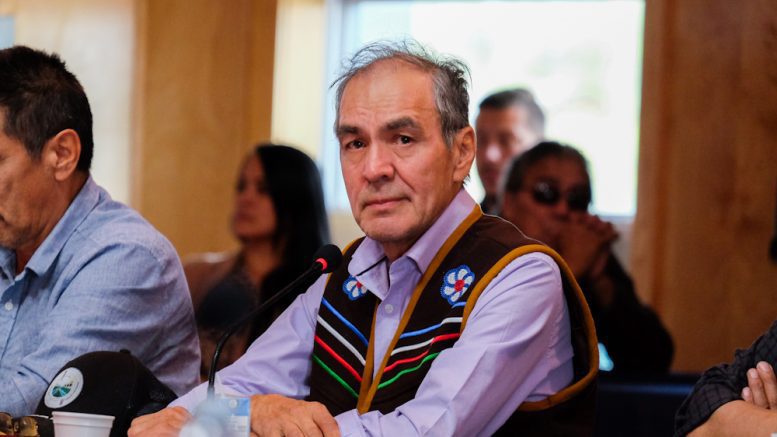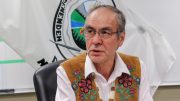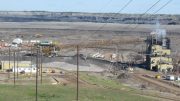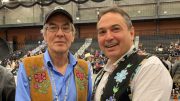Dene National Chief Norman Yakeleya says he was “shocked” and “disappointed” at seeing Prime Minister Justin Trudeau in brownface makeup.
But he added if you look at the broader institution of the federal government, it wasn’t so surprising.
“Ever since the Europeans first stepped on our country, our lands,” said Yakeleya, “we have been facing a lot of damaging history of offensive, insensitive, inaccurate and racial portrayal of Aboriginal People.”
CKLB reached Yakeleya in Vancouver where he attended a presentation by the National Centre for Truth and Reconciliation for work on creating a National Residential School Student Death Register.
A historical pattern
In his response to the Trudeau photo, NDP leader Jagmeet Singh pointed to the prime minister’s comments earlier this year where he brushed off Indigenous protesters at a Liberal fundraiser and thanked them for their donation to the party. The protesters wanted to bring attention to the ongoing issue of mercury poisoning in Grassy Narrows, ON. Singh said these recent comments show a pattern of behaviour by Trudeau where he dismisses concerns from minority groups.
Yakeleya pointed to residential schools and said that pattern was not only demonstrated by Trudeau, but the broader institution of the federal government. He listed other ongoing issues like boil water advisories and the lack of housing as proof that a pattern of discrimination extends long before the Trudeau government.
“Generally, it’s been a pattern right since John A. Macdonald and the Indian Act,” said Yakeleya.
Views ‘not deterred’
In August, Yakeleya gave a presentation to the Sahtú Secretariat annual assembly in Fort Good Hope on the Indian Day School settlement. At the time, Yakeleya also encouraged Indigenous people to vote in the upcoming federal election and that the Trudeau government “has been good to us.”
CKLB asked if these latest events had changed his mind.
“Like I said, I was shocked but it has not yet deterred my views of the federal government,” he said. “They have been the most progressive government to recognize and put in law some of the key Aboriginal issues such as language and child welfare.”
Yakeleya recognized there was still much work to be done and that working with the federal government was sometimes “disappointing” with how slow things move and a lack of clarity.
“But the point is that they are willing to work,” he said. He also acknowledged Trudeau accepting responsibility and giving a heartfelt apology for this action. Ultimately, he said it’ll be up to voters on October 21 to determine whether Trudeau still deserves to be prime minister.
Francis was a reporter with CKLB from January 2019 to March 2023. In his time with CKLB, he had the immense pleasure and honour of learning about northern Indigenous cultures.









